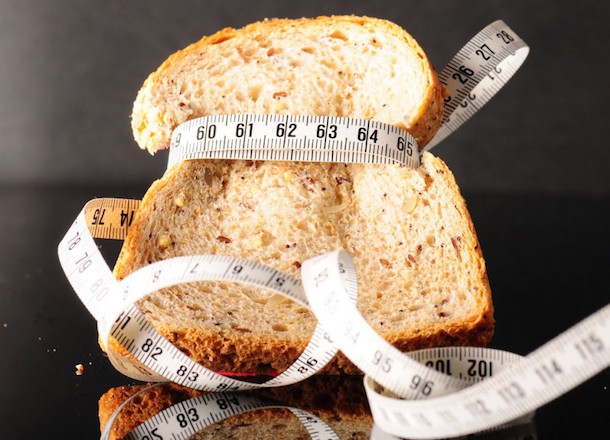Carbs make you fat. It must be true, because it’s what all the trendy diets tell you. From Atkins to Paleo, carbohydrates are almost universally vilified – Public Enemy No. 1 for anyone trying to get ripped.
There’s just one problem: carbs are important. They’re an essential part of the human diet, and lumping all carbohydrates into the same category does them (and your body) an injustice. If you think they’re universally evil, it’s time to take a step back, distance yourself from the dogma, and get clear on the real rules of carbs.
What Are Carbohydrates, Really?
 Carbohydrates are macronutrients, just like proteins and fats. They are the fuel that keeps your body running. In fact, they’re the primary source of energy for your body. Without carbs, your body can’t produce a sufficient amount of glucose. Without glucose, your cells become starved for energy. And when that happens, a whole host of undesirable effects kick in (like depleted blood oxygen levels, headaches, muddled thinking, and low energy).
Carbohydrates are macronutrients, just like proteins and fats. They are the fuel that keeps your body running. In fact, they’re the primary source of energy for your body. Without carbs, your body can’t produce a sufficient amount of glucose. Without glucose, your cells become starved for energy. And when that happens, a whole host of undesirable effects kick in (like depleted blood oxygen levels, headaches, muddled thinking, and low energy).
Experts recommend consuming 45 to 65 percent of your daily calories from carbohydrates to keep your brain, blood, and nervous systems functioning optimally.
But what about everything you’ve heard about excess carbs becoming fat? Isn’t cutting back on pasta and white bread key to keeping fit?
Quality And Quantity
 It’s not just quantity that matters when it comes to carbohydrates. Quality is an important part of the puzzle.
It’s not just quantity that matters when it comes to carbohydrates. Quality is an important part of the puzzle.
Complex carbs – the kind in starchy vegetables and whole grains – aren’t a foe of fitness. They’ve been linked to healthier weight as well as decreased risk for type 2 diabetes and heart disease. Because they are more difficult for your body to break down, complex carbohydrates are digested slowly and the absorption of sugars into your bloodstream is stalled as a result. Cue a variety of benefits for your body.
First, complex carbs don’t cause blood sugar and insulin levels to spike to the point associated with body-fat storage. What they do cause is healthy gut bacteria, which can lower inflammation and strengthen your immune system. They also go hand-in-hand with high fiber, another boon for your body.
The Real Enemy
 At the other end of the dietary spectrum are refined carbs. Those are the ones found in cookies, chips, and pastries, and as you can probably guess, they have the opposite effect of complex carbohydrates.
At the other end of the dietary spectrum are refined carbs. Those are the ones found in cookies, chips, and pastries, and as you can probably guess, they have the opposite effect of complex carbohydrates.
Gorging on refined carbs causes your insulin and blood sugar to skyrocket, and makes those little guys in your gut produce inflammatory compounds. So not only are you in for metabolic malfunction, you’re also setting yourself up for obesity, heart disease, and type 2 diabetes.
Eliminating refined carbohydrates from your diet is a must if you’re serious about watching your weight. Beware of “low-fat” products that often replace fat with processed sugar (also a carbohydrate, and more easily converted into body fat than unprocessed carbs) and aim to consume foods with the fewest ingredients possible.
The Bottom Line
 But wait – if some carbs are bad, and it’s hard to remember which is which, isn’t it easier to eliminate all carbs, just to be safe? The answer is no, and here’s why.
But wait – if some carbs are bad, and it’s hard to remember which is which, isn’t it easier to eliminate all carbs, just to be safe? The answer is no, and here’s why.
For starters, while you may experience weight loss on a carb-free diet, it’s more from water than body fat. Secondly, carbohydrates are crucial fuel for high-intensity workouts and endurance exercise. You’ll never achieve peak fitness if your body is starved of its primary energy source. Your body actually needs more carbs if your exercise regimen is especially intense, like training for a triathlon.
The recipe for healthy consumption is this: cut out refined carbs, eat a consistent amount of complex carbs daily, up your intake if high activity levels are expected, and cull your carbs from the greatest variety of whole sources possible. And the occasional cheat day? Go ahead and treat yo self.
